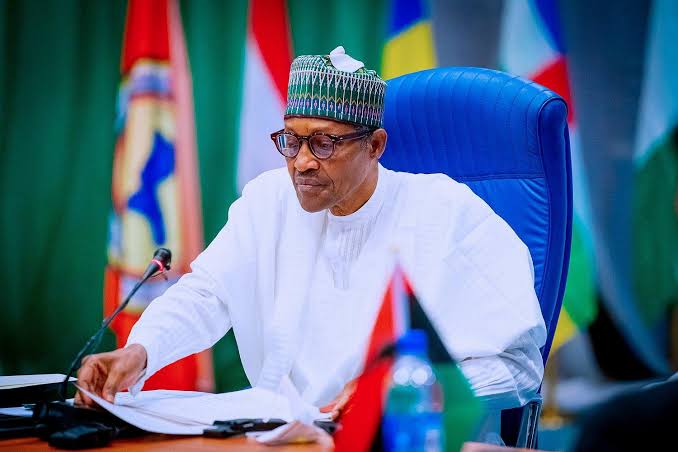This is the highest among other critical sectors in the 2022 budget, even as N1.45 trillion and N921billion has been set aside for infrastructure as well as youth, women and social development respectively.
This is followed by education with the sum of N875.93 billion for federal ministry of education and its agencies, N108.10 billion for universal basic education commission and N318 billion for Tertiary Education Trust fund (TETFUND).
Similarly, the health sector got N711.28 billion for the ministry of Health and its agencies, while N54. 87billion will be spent on gavi, immunisation and a transfer of N54.05 billion for the basic healthcare provision.
Minister of Finance, Budget and National Planning, Hajiya Zainab Ahmed, disclosed this during the public presentation of the 2022 proposed budget in Abuja yesterday.
In the new draft budget, the executive is proposing aggregate revenue available to fund the 2022 budget of N10.13 trillion (inclusive of GOEs), 24.8 per cent higher than the 2021 projection of N8.12 trillion
Without the government-owned enterprises (GEOs), retained revenue, the government revenue is projected at N8.40 trillion.
In aggregate, 34.9 per cent of projected revenues is to come from oil-related sources while 65.1 per cent is to be earned from non-oil sources.
The 2022 aggregate federal government expenditure, inclusive of government owned enterprises and project-tied Loans, is projected to be N16.39 trillion, which is 12.5 per cent higher than the 2021 budget.
Recurrent (non-debt) spending, estimated to amount to N6.83 trillion, is 41.7 per cent of total expenditure, and 18.5 per cent higher than the 2021 budget.
The budget has aggregate capital expenditure of N5.35 trillion or 32.7 per cent of total expenditure.
This provision is inclusive of the capital component of statutory transfers, GOEs capital & project-tied loans expenditures.
At N3.61tn, debt service for 2022 is 22 per cent of total expenditure, and 35.6 per cent of total revenues.
“Achieving government’s budget objectives requires bold, decisive and urgent actions. Government is determined to act as may be required,” the Finance minister said.
On the 2021 budget expenditure side, she said N8.14 trillion (or 84 per cent) has been spent out of the N9.71 trillion prorata budget.
This performance, she added, is inclusive of expenditure estimates of the government owned enterprises but exclusive of project-tied loans.
Out of that, N2.87 trillion was for debt service, and N2.57 trillion for personnel costs, including pensions.
The minister disclosed that as of August 2021, N1.759 trillion was expended on capital, and of this, N1.723 trillion represents 81 per cent of the provision for MDAs’ capital, and N36.01billion as government-owned enterprises capital expenditure.
Meanwhile, the federal government has announced key changes in the 2022-2024 medium-term expenditure framework (MTEF).
According to the minister of Finance, the revision was necessitated by the need to reflect the new fiscal terms in the Petroleum Industry Act (PIA) 2021, as well as other critical expenditures in the 2022 budget.
Factors that forced the government to make the changes in the fiscal framework include the fact that gross federation revenue projection decreased by N341.57 billion, from N8.870 trillion to N8.528 trillion.
Deductions for federally-funded upstream project costs and 13 per cent derivation decreased by N335.3 billion and N810.25 million respectively.
Ahmed said net federation oil and gas revenue projection declined by N5.42 billion from N6.540 trillion to N6.535 trillion.
To further enhance independent revenue collection, she said the federal government aims to optimize the operational efficiencies and revenue generation focus of GOEs.
“There would also be an introduction of new and further increases in existing pro heath taxes for example, excise on carbonated drinks,” she said.
The minister also reaffirmed that GOEs’ revenue performance/remittance will be enhanced through effective implementation of the enhanced performance management framework, including possible sanctions for defaulters
She added that there would be tighter expenditure control, including enforcement of Finance Act 2020 provision which would limit GOEs cost-to-revenue ratio to maximum of 50 per cent and regular independent monitoring and reporting of revenue and expenditure performance of GOEs by both the budget office of the federation and the office of the accountant general of the federation.
Ahmed said the government is keen on improving revenue for implementation of the budget.
“At that level of revenues, the debt-service-to-revenue ratio will cease to be worrying. Overall, we do not have a debt sustainability problem, but a revenue challenge which we will tackle to ensure our debts remain sustainable,” she added.
On strategies to improve the revenue generation for the country, the minister explained that the federal government remains committed to using innovative ways to raise the revenues required to finance its expenditure and diversifying its revenue sources.
“Several measures are being instituted under the administration’s Strategic Revenue Growth Initiatives to improve government revenue and entrench fiscal prudence with emphasis on achieving value for money,” she said



